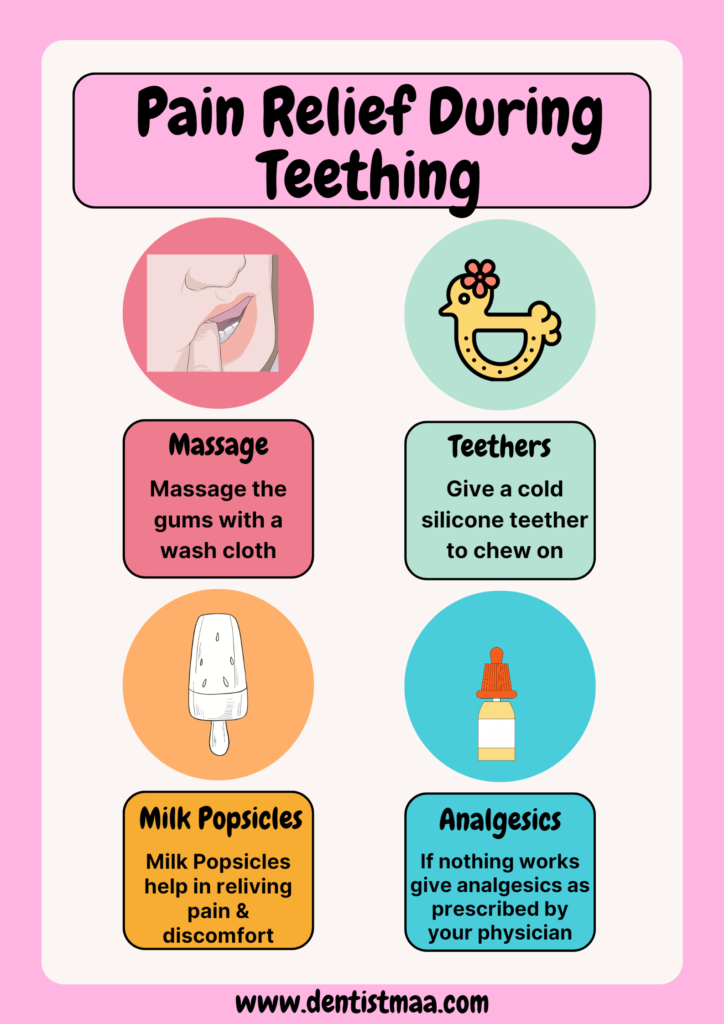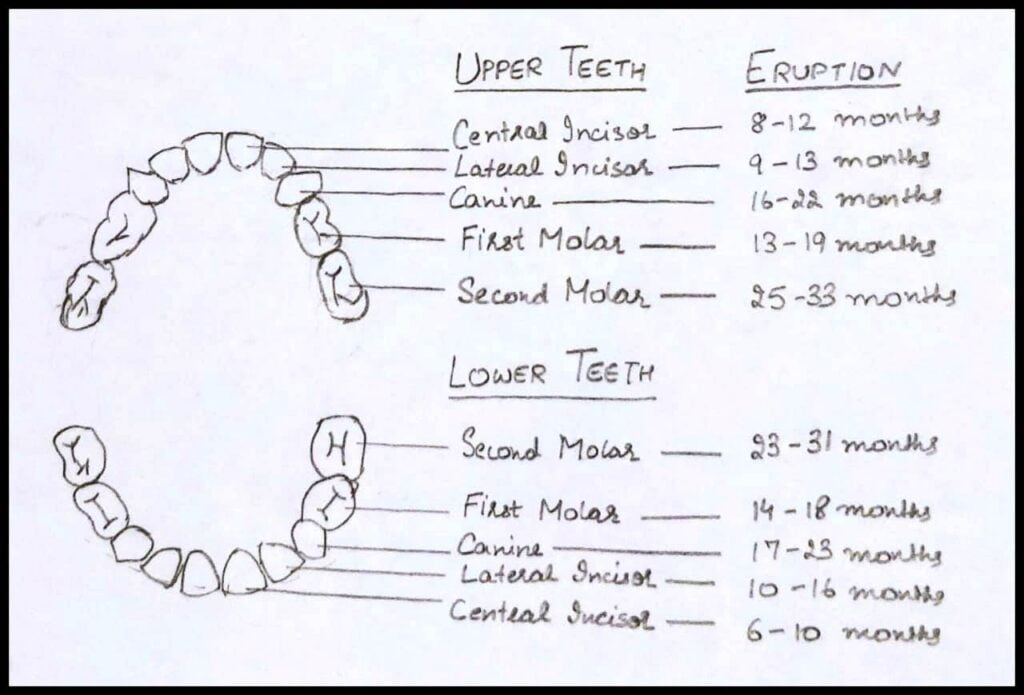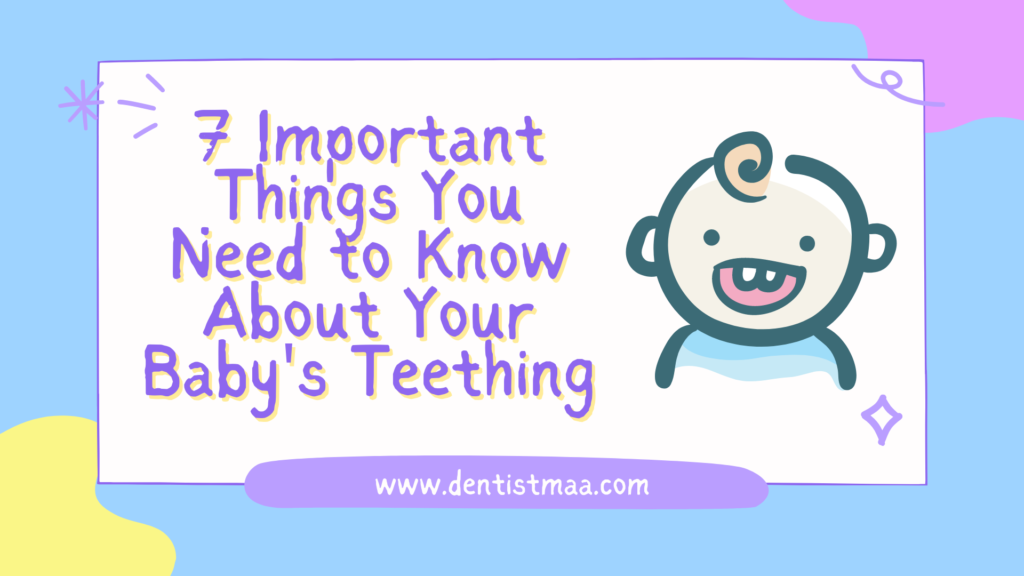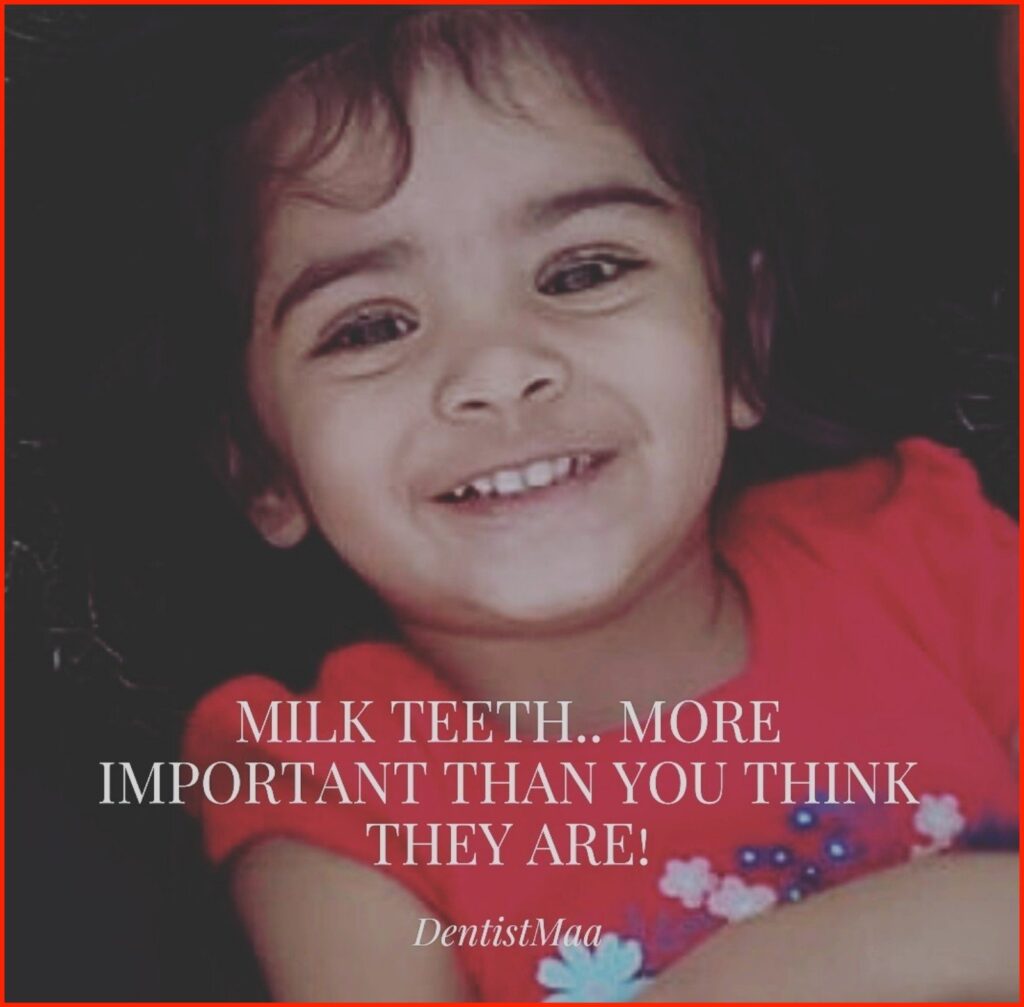Teething is one of the most important milestones your child will achieve. The cute smile of your baby will be more cuter with small teeth coming in. But teething is a challenge for some babies as well as the parents. While some kids have to deal with a lot during this time, some don’t even get to know and get almost all their teeth. There are few things you as a parent should know about your child’s teething.
1. Teething is a natural process
Teething is a natural process which starts anywhere between the age of 3 months to 18 months, and it doesn’t require any medicine. So, it is better to avoid any type of homeopathic teething tablets which someone advices you, as according to the FDA they are not safe for kids under the age of 2 years. These contain a harmful chemical belladonna which can cause complications. Also certain teething gels are harmful as they contain benzocaine which again is not advised for kids under the age of 2 years. They don’t cause any relief in the pain or discomfort in your child. So why put your child at risk?
Related: Are Teething Tablets Safe For The Babies?
2. Pain relief during teething
Teething causes a lot of irritation in the gums for certain children. They become cranky, keep drooling and putting everything in mouth. Here is what you can do to relieve the irritation in the gums:
1. Massage the gums with a clean cold cotton cloth wrapped around your finger or a gauze piece.
2. Also you can keep a properly washed silicone teether in the fridge ( not the freezer) for about half an hour and give it to your child to chew. Incase you suddenly found out your child is teething and you do not have a teether yet, you can just cool a stainless steel spoon and give your child the blunt side to chew on but of course only under supervision. Be very careful while buying teethers. Avoid plastic. Go for a silicone based teethers and also avoid teethers with liquid inside.
3. Avoid anything that can break and go inside your child’s mouth, like the teething necklace.
Related: 4 Reasons Why Teething Jewelry is a Terrible Idea.
4. Milk Popsicles is another way to relieve the discomfort at least for a while.
5. Incase of severe pain and discomfort a pain killer once in a while wouldn’t hurt for a good night sleep both for the child and the parents. So you can just call your pediatrician and get a prescription for the same.

3. Loss of appetite during teething
Loss of appetite is a common symptom of teething and there is nothing to worry about if your child is eating less or prefers only a certain type of food. Do not force feed your child at all, as it will even cause him or her to eat less. The symptom will go away slowly in a few days and your child will start eating again. You can give more of fluids to your child. Kids sometimes prefer cold liquids and smoothies.
4. Fever and diarrhoea
Teething causes only one degree rise in temperature in kids and any high grade fever which is present should be addressed immediately and you should visit your pediatrician as it is not because of teething
During teething kids tend to put everything in mouth which causes stomach infection and therefore diarrhea. The best is to maintain a very good hygiene by cleaning the baby’s surrounding and frequently washing baby’s hands. A pediatrician should be consulted immediately if your child is having diarrhea. Keep the child well hydrated. Again do not force feed.
5. Teething sequence

The lower front teeth ( lower central incisors ) are the first tooth to erupt in the mouth. But the sequence might change in some kids and still there is nothing to worry about. Most of the times the child will get the teeth in pairs but if the teeth do not erupt in pairs again there is nothing to worry. First dental visit of the child should be done within 6 months of eruption of the first tooth or the child’s first birthday which ever is earlier.
6. When to start brushing?
Brushing of a kids teeth should start as soon as the first tooth erupts and the cleaning of the gums and tongue should start at birth. A silicone finger brain can be used and then slowly cn shift to a normal kids age appropriate tooth paste.
Starting brushing early helps in maintaining good oral hygiene, prevent cavities and also helps in inculcating good oral habits in your child.
7. When to visit a pediatrician/pedodontist?
A pediatrician should be consulted when
a. Your child is having a high grade fever ( as it is not a symptom of teething)
b. Your child is having loose motions or vomiting
c. There are no other symptoms of teething but still your child has not been eating from a few days now
d. The gums are not pink but blue and swollen
e. Rashes on the babies bodies
The child’s first dental visit is mandatory by the child’s first birthday or within 6 months of eruption of the first tooth, whichever is earlier.
So, as a parent sometimes it becomes a task for us to deal with the irritability of our little ones. But we should keep in mind that they are not actually feeling well, though nothing wrong might be visible, and this is new for them. Many of us might have experienced the discomfort we have while getting our wisdom teeth (third molars). It is the same for them. So, cuddle with them, play, listen and understand and give them what they need to get out of this difficult stage with love and care.
Happy Parenting!





Nicely explained well done dr. Garima
Thank you so much Ma’am 🙂
Very important tips for all the parents to take care of baby teeth. Very useful. Keep it up.
Thank you so much 🙂
Very informative! Thanks for the detailed information
Thank you so much 🙂
Your write-up regarding ‘Teething’ was really informative.Teething troubles should always be dealt with properly .you have highlighted them very nicely.
Thank you so much 🙂